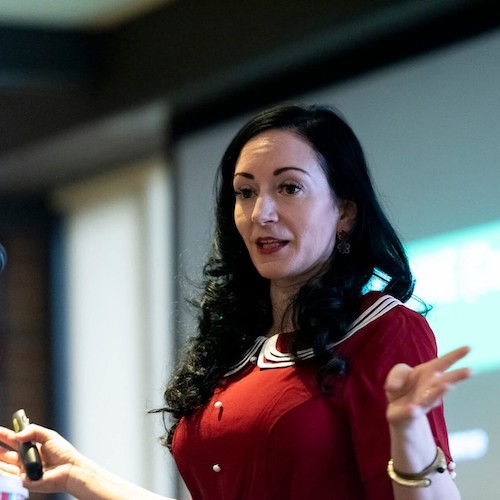Why this matters:
- Many survivors have not received justice as their offenders have not faced legal consequences and, in some cases, have not even been identified. In some cities, less than 4% of reported rapes and sexual assaults resulted in convictions, according to an investigation.
- Offenders of sexual assault may continue to commit crimes when they are not held accountable for their actions due to a lack of testing of sexual assault kits and convictions. In Michigan, there was previously a backlog of over 3,000 untested sexual assault kits, and nationally, sexual assault kit initiatives in 35 states have inventoried thousands of sexual assault kits.
- Research findings from going through case files and police reports will be used to bring reform to this area of the criminal justice system.
EAST LANSING, Mich. – In 2017, Wayne County identified over 800 serial offenders by testing its backlog of kits with 170 individuals remaining unknown. Now, in Ingham County and across the state, similar efforts are underway to identify and hold perpetrators of sex crimes accountable.

A researcher from Michigan State University has centered her research on better understanding whether offenders of cold case sex crimes — where victims report the assault and no one is apprehended — ultimately face justice and/or are prevented from perpetrating more crimes.
Karen Holt is an assistant professor in the School of Criminal Justice, and her latest study focuses on working with investigators to bring accountability to sex crime offenders and to understand the behavior, patterns and criminal histories of offenders identified as suspects.
Her work includes the process of testing backlogged rape kits across the state of Michigan as part of the Sexual Assault Kit Initiative, or SAKI, and she plans to present her findings at the upcoming June 2025 Ingham County Sexual Assault Kit Initiative Summit.
Background
In the United States, according to the Rape, Abuse and Incest National Network, one in six U.S. women experience either an attempted or complete rape, and one rape occurs every 68 seconds in the United States. Most cases of sexual assault go unreported, but even when victims do report, prosecutions are regrettably uncommon.
Compounding that reality is the fact that many sexual assault kits are not tested, resulting in either the delay or prevention of justice for survivors of sexual violence. In Michigan, for example, some untested kits were warehoused for years before being discovered and then sent for processing in August of 2018, when 3,440 previously untested sexual assault kits were submitted for DNA testing under the Michigan SAKI and tested.
The testing of a sexual assault kit costs just under $1,000, but each assault costs victims around $200,000 in terms of both physical and emotional pain, according to research.
Testing these kits resulted in hits from the Combined DNA Index System, a database used by law enforcement to exchange and compare DNA profiles that can identify suspects and link crimes.
“MSU has been at the forefront of the Michigan SAKI research since the beginning, with MSU Professor Rebecca Campbell and her team’s groundbreaking work,” Holt said. “My work extends this by looking at offenders’ behavior and patterns and the investigative response to them.”
Study structure
The Michigan State Police, through funding by the Bureau of Justice Assistance, approached Holt to help examine their case files. Together, they are working closely with the Ingham County SAKI team to see if suspects were identified, what their criminal histories look like, and what the resolution of these cases has been.
Holt has been examining DNA evidence, police reports and criminal background data to identify these offenders and will soon begin to interview identified offenders. Specifically, she hopes to learn whether offenders committed additional crimes and if they were prosecuted.
“A major point of my work has been to examine what happens when offenders are not held accountable for their crimes,” Holt said. “For me, being offender-focused means putting a magnifying glass right on the person who committed the crime.”
Implications of research
Combing through police case files and reports can be tedious and time consuming, but Holt has seen what happens when solid investigations take place and investigators understand offender behavior. In one case, led by SAKI detective Annie Harrison, it led to the successful prosecution of a serial offender.
Holt’s work is important for not only demonstrating what happens when individuals are not held accountable for their crimes, but to bring changes and reform to our criminal justice system.
She is focused on creating ways to bring researchers and practitioners together through partnerships, training and education to shift the conversation away from blaming survivors to understanding the ways that offenders manipulate and exploit them.
“I approach the study of sexual assault offenders through my research, which helps investigators. The investigators share their wealth of knowledge and experiences with me. These kinds of collaborations are critical in approaching and combatting sexual violence.”